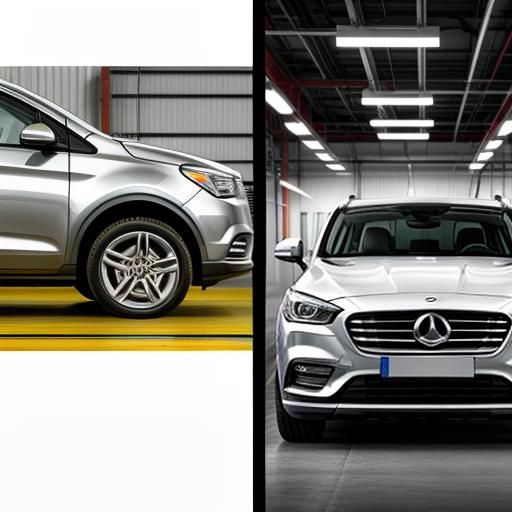Warranty vs Vehicle Service Contract: 5 Key Differences That Matter Most
When shopping for protection plans for your car, it’s easy to get confused by the terms thrown around. Among the most misunderstood are “warranty” and “vehicle service contract.” While many use them interchangeably, they are not the same thing. In this guide, we’ll break down the real differences in the debate of warranty vs vehicle service contract, so you can make an informed decision when protecting your vehicle.
and
What Is a Warranty?
A warranty is a guarantee from the vehicle manufacturer promising that your vehicle will be free from defects in materials or workmanship for a certain period or mileage limit. A manufacturer warranty is included in the purchase of a new vehicle, and it typically lasts 3 years or 36,000 miles, whichever comes first.
There are also powertrain warranties, bumper-to-bumper warranties, and emissions warranties. These are legal obligations for the automaker and come at no additional cost to the consumer. This is a key point in the warranty vs vehicle service contract discussion.
What Is a Vehicle Service Contract?
A vehicle service contract (VSC) is a protection plan you can purchase separately. It’s often offered at the dealership or through third-party providers. Unlike a warranty, a vehicle service contract is optional and comes with a cost.
These contracts cover the cost of repairs and replacement parts after your manufacturer’s warranty expires. Some VSCs even begin coverage before the factory warranty ends, providing added peace of mind. In the debate of warranty vs vehicle service contract, this distinction is crucial.
5 Major Differences: Warranty vs Vehicle Service Contract
Let’s explore the 5 biggest differences between a warranty and a vehicle service contract so that you can choose what works best for your car ownership experience.
1. Source of Coverage
-
Warranty: Comes from the vehicle manufacturer.
-
Vehicle Service Contract: Offered by a third-party company or dealership.
This affects how repairs are handled, what’s covered, and where you can get service.
2. Cost to the Vehicle Owner
-
Warranty: Free, included with your new car.
-
Vehicle Service Contract: Purchased separately, either up front or through monthly payments.
Many people learn this difference the hard way when budgeting for long-term ownership costs. So remember, in the warranty vs vehicle service contract conversation, only one is free.
3. Duration of Coverage
-
Warranty: Usually 3 years/36,000 miles or 5 years/60,000 miles.
-
Vehicle Service Contract: Can be customized—often 2 to 8 years depending on provider.
A vehicle service contract can actually offer longer protection, which is important if you plan to keep your vehicle for several years.
4. What’s Covered
-
Warranty: Only covers manufacturer defects.
-
Vehicle Service Contract: Can include mechanical breakdowns, electrical issues, and more as well as simply wearing out over time.
In other words, warranty coverage is narrower. A good VSC, especially an exclusionary policy, often offers broader protection.
5. Flexibility of Repairs
-
Warranty: Repairs must be performed at an authorized dealership.
-
Vehicle Service Contract: You often have more options for repair facilities.
Some contracts allow repairs at any certified mechanic, making it easier and more convenient.
Why This Matters to Used Car Buyers
If you’re buying a used car, odds are the factory warranty has expired. This is where a vehicle service contract becomes essential. You’ll be responsible for any repairs unless you have coverage in place. In comparing warranty vs vehicle service contract, only the VSC offers protection after the manufacturer’s warranty ends.
Common Myths Debunked
-
Myth: A vehicle service contract is a scam.
-
Truth: While some low-quality providers exist, reputable companies like VIP Warranty offer simple, transparent, and reliable coverage.
-
-
Myth: Warranties and VSCs are the same.
-
Truth: They’re governed by different laws, provide different coverage, and come from different sources.
-
Plugging VIP Warranty: A Smart Choice
With VIP Warranty, you get:
-
Simple terms
-
Transparent pricing
-
Reliable claims service
Whether you’re comparing warranty vs vehicle service contract or simply trying to extend peace of mind, VIP Warranty stands out.
Simple. Transparent. Reliable.
Final Thoughts
Understanding the truth behind warranty vs vehicle service contract can save you time, money, and frustration. While a warranty gives you initial coverage, a VSC is what carries you the rest of the way. Know the difference, choose wisely, and protect your investment.
If you’re ready to get started, click the button below to explore coverage options and get a custom quote today.
[Get My Quote Now]

Learn More about Subaru Extended Warranty Pricing
- Consumer Financial Protection Bureau (CFPB)— Explains the clear distinction between a manufacturer’s warranty and an extended service contract, detailing what’s covered, duration, costs, and cancellation rights
- Federal Trade Commission (FTC) — Offers comprehensive guidance on auto warranties vs. service contracts, highlighting how service contracts are optional add-ons and how to avoid scams
-
RefiJet — A recent and practical guide comparing extended service contracts and factory warranties, with pros and cons to help consumers make informed choices
-
Michigan State University Extension — Educational piece outlining the key difference: manufacturer warranties are included in the purchase price while service contracts are optional add-ons
